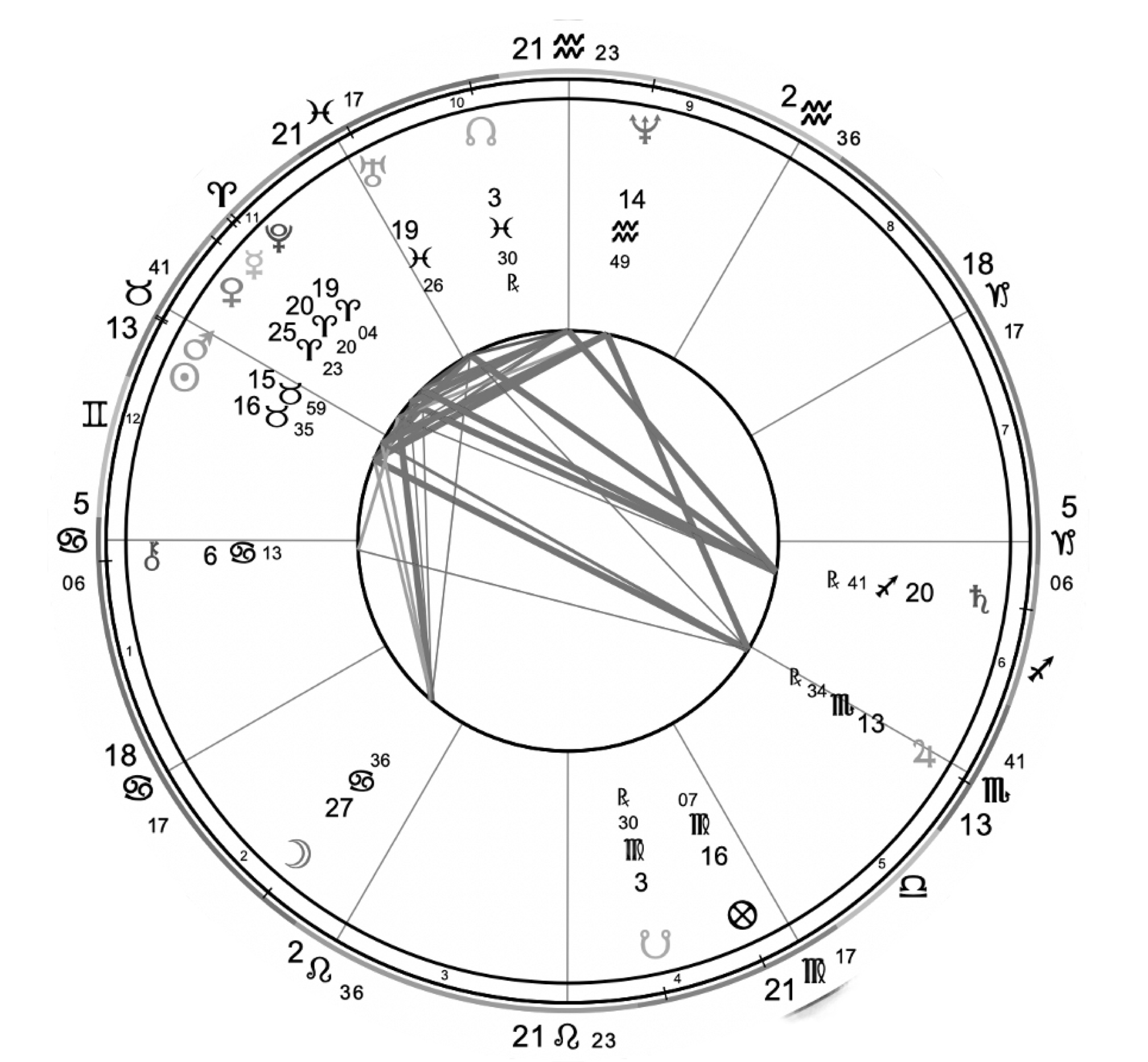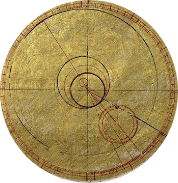Tchaikovsky, the illustrious composer of the Romantic era, is classified as a representative of this particular type of human.




Almost from the moment of his birth, he fled from himself. Where did he go? Somewhere, he can have one foot at the bottom of the sea, one on the earth, one hand towards humankind, and the other towards Heaven.
He was a man of unparalleled depth, a master craftsman of the highest order who left us with a remarkable gift: the fantastic realism that helps us see the human/angel struggle in our daily lives and beneath its surface.
With this story, we travel back to Russia in 1840 to meet a beautiful, impressionable composer who loved wilderness and mushroom picking.
He was described as a "porcelain child" with a delicate central nervous system. It is said that his caregiver found him weeping in bed because the music in his mind would not grant him peace.
"Oh, it’s this music! Get rid of it for me! It’s here, here. It won’t give me any peace." - said the boy, weeping and pointing to his head.
From his early years, his life was filled with melodies from Mozart, Rossini, Bellini, and Donizetti, played on the orchestrina by his father.
His parents, Aleksandra and
Ilya, were musically literate and quickly recognized Pyotr's remarkable ear and musical perception.
At age five, Pyotr began composing music, often drawing inspiration from Shakespeare's plays, like Hamlet, The Tempest, and Romeo & Juliet. His teacher, Anton Rubenstein, saw his potential and encouraged him to deepen his gift.
Though we can never be certain what thoughts and emotions ran through the composer's mind, we can be sure that his music provided an escape into an ethereal world - a world that he himself was irresistibly drawn to.
Despite being introverted and not particularly fond of social situations, he made a pleasant effort to endure them. Tchaikovsky knew his effect on people; his manners, effortlessness, and communication skills made him quite a charismatic and welcoming social figure.
However, more often than not, he would shroud himself in mystery and make himself deliberately unavailable to any curious gaze. He found it generally tiresome and annoying to whirl in a whirlwind of the hustle and bustle of unnecessary social contacts - the composer was accessible to the people, but the man was not.
“I wept many times, during my travels, while composing in my mind.”
Indeed, his story is one of painful truth characterized by seductive sadness, selfless questioning, harsh confession, sinner's hope, and preserved dignity.
These bitter-sweet struggles fuelled a creative fire that allowed him to express grand themes, personal emotional complexities, and a sense of nostalgia for what could have been but never was.
“Time and time I was transported to this distant past, which made me feel terrible, but at the same time sweet." (Extract from a letter)
Moreover, when we think about the emotional highs and lows in Tchaikovsky's life and work, we glimpse the psychological dramas of Dostoevsky and the passionate turmoil of Tolstoy.
Although the three men were very different in their character, they shared one gift, a gift of 'speaking' to the people. This is, in short, the most powerful gift in life and, when properly directed, the most beneficent.
To be transported into the realm of pure 'otherness,' extend an ear to his celestial Hymn of the Cherubim. For a more haunting and seductive journey, try Symphony No. 1, "Winter Daydreams."
And lastly, Symphony No. 6 in B Minor, Op. 74, "Pathétique," will leave you in profound delight. I must tell you, dear reader, that in the last movement of his 6th symphony, the fateful Pathétique, I feel that Tchaikovsky is communicating a confession: a sense of profound resignation and unsatisfied longing where the sorrowing and broken-hearted ever seek a heaven of perpetual peace.
Should you ever decide to listen to the Pathetique, observe how, when the melody rises, it feels like your heart is broken, like a broken bone. But when the melody falls, Tchaikovsky quickly twists us into something radically new, beautiful, and intensely personal, where the broken becomes whole again.
With this emotional directness, Tchaikovsky explores what is furious and sensually opulent within us. How shall sin perceive Holiness? How shall Holiness understand sin? The greater and the lesser. Can one exist without the other?

Perhaps an overreaching of both polarities is needed to trigger our creative energies and evoke a profound, open-hearted response.
This overreaching can be felt in his ballets—Swan Lake (1877), Sleeping Beauty (1889), and The Nutcracker (1892). They are an eternal love letter to the world.
I present this list with my apologies to the great Mr. Tchaikovsky.
Undoubtedly, his melodies are a brilliant conjuring of collective emotional hallucination, and I invite you to experiment with all of them. However, a word of caution is in order: even 130 years later, they can evoke grand emotions and directly affect the organism of anyone who contemplates them. 8
If you’ve read thus far, I want to thank you.
I'm deeply grateful that you've chosen to spend some of your valuable time here. Without your precious energy, dear reader, my friend, this story would be much less than it is. And so, no matter what led you to this story, I'm excited to find out what you think:
In the energy of Taurus, music reveals itself as a witness to the Truth in our daily lives. Are we an instrument of our own, individualised Truth? Yes, no, maybe so...?
And if so, perhaps this is why we as listeners get so absorbed in music: because the Truth, you see, is seductive.
Tauruses' profound appreciation for music is rooted in their association with Venus. In this realm, it is believed that anything genuine and significant is crafted meticulously, slowly, and lovingly with perseverance.
Tchaikovsky's art perfectly exemplifies this quality, as it stands out as a testament to the power of patience and focus. His art is not created in a vacuum but rather through a deliberate process that allows him to bring his ideas to life meaningfully and timelessly.
For Tchaikovsky, each note contained life, and each silence held the promise of many untold stories. And what about those spaces between sound and silence? Well, we can imagine that Tchaikovsky saw them as a secret garden where spirits roam free, waiting for their moment in the sun.
And so, in alignment with the cosmic threads that dictated his birth, Tchaikovsky, instead of hurrying through his creations, gave his ideas the time to develop and mature. He would compassionately sink into himself and unfold from within. As he unfolded himself, he enfolded the universe.
He also polished all the complexities of his nature and personality and produced something that another member of our species would look at and say, "Oh, I, too, would love to be able to make something as beautiful as that!" And despite his immense angst, self-doubt, and bouts of depression, he possessed three cardinal virtues: a serene patience, an unwavering faith, and a tactful yet firm push to get things in motion. 11 12
Regarding this matter, he says:
"I hope you will not think I am indulging in self-laudation, if I tell you that I very seldom suffer from disinclination to work. I believe the reason for this is that I am naturally patient. I have learned to master myself...”
Furthermore, whether Tchaikovsky was an avant-garde artist is a matter of definition. Although his creative spirit did not have an experimental art style, Tchaikovsky did, however, incorporate avant-garde concepts to enhance his musical language. 13 14 15
Moreover, Tchaikovsky's political views and beliefs were firmly rooted in the conservative Tsarist regime, further distancing him from the anti-establishment attitude of the avant-garde movement. He was not concerned with innovation but with the perfection of style.
His humble wishes were to carry out something new, not by whimsy and not by imitating others' work, but by diligence, watchfulness, energy, and effort. 16 17
And what about the loves of Tchaikovsky?
However, regarding romance, I feel this to be true: naturally, Tchaikovsky's humanness longed for love, touch, tenderness, caresses, and protection. As for his soul, his soul was free and aware of where that "other" exists, this other that dwelt with him in ancient proximity. He knew very well who awakens secret vibrations in his soul, and he would move within the knowledge of this "other" in a world beyond his mundane reality.
_________
In parentheses, I would like to thank you, once again, for following me through these pages. It
delights me that you find some interest in reading Tchaikovsky’s story. While I write this and as you read this, we are connecting heart to heart, sharing our souls. And so, my heart has a favor to ask your heart—please be gentle with my content and abstain from plagiarising my words. Putting a spin on my words and making them your own will not have the same energetic effect, as we are two different instruments from which the universal energy seeks to unfold itself.
Moon in Cancer predisposed our composer to have a sensitive and caring nature. He was so well-developed in his sensitivity to others that he often found himself in two different realms at once - his real life and his imaginary life, the life he lived and the life he dreamed.
Moon in Cancer is the area of our psyche where reflection and combat are commingled. These are the romantics, artistically gifted individuals who teach us how to live, die, dream, and above all, how to love. Poetry is exalted here: love, analysis, re-creation - and offered as a model for universal imitation.
The Moon in the Second House connects one with one's values, possessions, or the material things in this world. Clearly defining your values and emotions will make you feel the most comfortable. 2nd house deals with financial success; the Moon deals with gut feelings; this means you are likely to be successful financially when you follow your gut feelings.
Tchaikovsky's Moon was in trine with Uranus. This means that he had the ability to speak in a language beyond language, a language comprehensible not through the faculty of reason but through the body, through the skin.
With the placement of Chiron in the 1st house, Tchaikovsky’s sense of who he was stemmed from certain disturbing realizations about his personal self and painful memories.
Throughout his life, he felt the panic of the loser who wrestles with an angel. He was secretive and hid his brainchild (visions) from his milieu. The reason for secrecy remains unknown and could range from the most trivial to the most serious.
His presence was mystically healing for others. He possessed a natural magic that strengthened as he stayed true to his nature.
As long as Chiron in the 1st house operates more or less unconsciously, he is challenging to overcome, so the first step in healing this part of our psyche is to become more conscious of the pain.
i.e., What happened in the past that makes one feel frustrated with their abilities?
Chiron in the 1st House challenges one to find their psychological center—nourishing and providing parenting for oneself rather than depending on the external world for comfort and security. Without this base, one is more easily unbalanced and may move in different emotional directions as the wind blows.
Favorite of Tsar Alexander III, he was widely regarded as a national treasure.
“Of all the people and artists whom I have had occasion to meet, Tchaikovsky was the most enchanting. His delicacy of spirit was unique. He was modest like all truly great men and simple as only very few are. Of all those I have known, only Chekhov was like him.”
Jupiter, in Tchaikovsky's chart, sits together with Chiron. The alignment of Jupiter and Chiron in trine creates a unique combination of spiritual energies. Although both planets are associated with spirituality, they operate differently. Jupiter's optimistic energy complements Chiron's tendency for pain and suffering as a way to find enlightenment. Tchaikovsky's life is a perfect example of this. Despite facing distressing circumstances, he found solace in his creations.
There was no stronger, more enduring, and agonizing love in all his life than his work. He had a strong connection with spirituality and a great tendency to go his way rather than subserve himself to the spiritual ideals of human consciousness (Jupiter in Scorpio).
Suppose your Jupiter is in trine with Chiron. In that case, you, yourself, probably have an abiding interest in matters of religion, spirituality, and philosophy. However, this is likely to represent your style of spiritual involvement rather than any standard form of spiritual institution.
When you listen to Tchaikovsky's melodies, you will experience three distinct energies - Venus in Aries, Mercury in Aries, and Pluto in Aries. The mystical experience of his melodies is precisely like this pull between Mercury, Venus, and Pluto, where there is an instantaneous fusion of opposites, tension, and release of tension, affirmation, and negation, being outside and rejoining oneself in the heart of a reconciled nature.
Tchaikovsky had this combination within the 11th house, which means that every defeat sustained by Pluto only strengthened his inner conviction that his first loyalty must be to his integrity.
Tchaikovsky had a Sun in Taurus in the 12th house. The 12th house contains mysteries for which human language is inadequate. To have the Sun sign in this house predisposes one with healing abilities.
The motto of this house is:
"Let's bring gentleness back."
Gentleness does not signal a lack of ability but the added ability to manage one’s strength to serve life-giving ends rather than life-taking ends. Truly confident and strong people give their energy and attention not to showing off their strength but to demonstrating their gentleness.
If your natal chart shows that your Sun is in this astrological house, you may deeply desire to connect with the universe's cosmic forces. You understand that you're part of a larger creation and that you're more than just a physical body with thoughts and emotions. This placement is often associated with artistry, poetry, and music, which means you would be naturally drawn to creative expression to capture the essence of the world around you.
Mars in Taurus in the 12th house also played a role in shaping his character, which was marked by perseverance, determination, and a strong work ethic. His innate resilience and staying power allowed him to weather life's challenges and pursue his dreams with unwavering focus.
Moreover, the conjunction of the Sun and Mars gave him tremendous physical strength and vitality, which he channeled into his creative pursuits and personal passions.
When the Sun and Mars are in conjunction, an individual's personality is infused with an intense, fiery energy that can manifest in many ways. One common trait among these individuals is their hedonistic tendencies and desire to indulge in physical pleasures.
This is not to say that they lack self-control. Rather, they are more attuned to their physical desires than most. Individuals with this conjunction naturally inspire those around them to embrace life's tactile pleasures and make the most of every moment.
Thanks to Saturn in the 6th house, his work showed unparalleled perseverance. Each note and melody seamlessly blended into one another, creating an everlasting impression on the listener's mind (Saturn in sextile Midheaven). The authenticity of his music is palpable, with each piece reflecting his unique style, personality, and emotions.
Saturn is about patience, tradition, tranquility, dark sensuality, and profoundness.
By valuing patience, Tchaikovsky learned to approach challenges calmly and steadily.
Embracing tradition helped him connect with his roots and appreciate the wisdom of those who came before him.
Cultivating tranquility and dark sensuality helped him to connect with his dark forest full of beasties.
Finally, he unlocked his full potential by embracing profoundness, thinking deeply and critically, and discovering new insights about himself and the world.